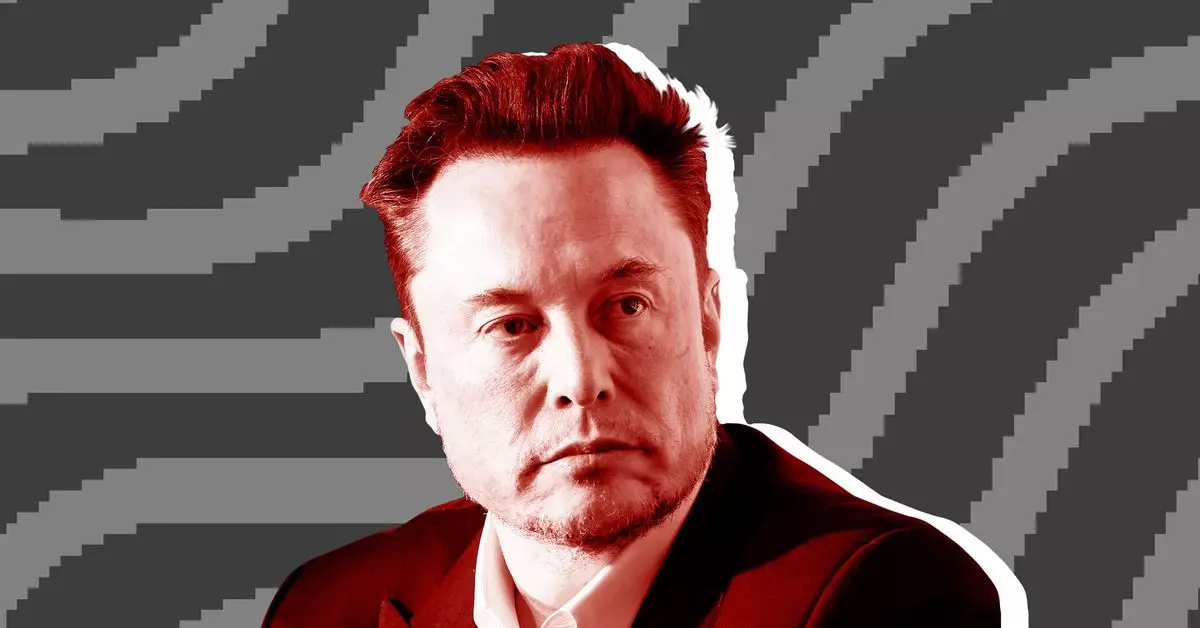The recent announcement of the Department of Government Efficiency, informally referred to as DOGE, has stirred the political landscape in the United States. With President-elect Donald Trump naming tech mogul Elon Musk and entrepreneur Vivek Ramaswamy to lead this unprecedented venture, the objectives outlined promise a radical overhaul of federal operations. Positioned as an answer to governmental inefficiencies, DOGE aims to dismantle bureaucratic entanglements while promoting an entrepreneurial spirit within the machinery of governance.
Leadership appointments like these resonate deeply, not only due to Musk’s high-profile status in the technology and business realms but also because of Ramaswamy’s burgeoning political influence. Together, they have been tasked with producing a new model of governance that prioritizes efficiency, accountability, and fiscal responsibility. Trump’s vision for this department suggests an administration keen on breaking from traditional frameworks—a bold departure that reflects ongoing frustrations with bureaucratic processes.
One of the most striking assertions made by Musk revolves around the ambitious pursuit of slashing federal expenditures by at least $2 trillion. The idea of achieving such monumental cuts stirs both intrigue and skepticism. Analysts have raised concerns, warning that these reductions are “virtually impossible” without impacting critical areas such as defense funding or vital social programs.
Therein lies the crux of the debate. While the promise of reining in government waste is appealing to many citizens burdened by high taxes, the potential ramifications of slashing funds to essential services could provoke public outrage. Musk himself has acknowledged the severity of these proposed cuts, suggesting that their implementation might trigger immediate economic repercussions. Thus, while the intent may resonate with conservative ideals of fiscal responsibility, the practical execution remains fundamentally challenging and fraught with ethical dilemmas.
Setting up operations “outside of Government” hints at a unique approach intended to circumvent traditional constraints that often hamper reform initiatives. The premise that the DOGE could function autonomously, while still closely collaborating with the White House and the Office of Management and Budget, raises important questions about the interaction between established governmental frameworks and innovative outside thinking.
Supporters of this initiative may argue that such an approach is necessary to foster an agile response to inefficiency, whereas detractors may contend that it threatens the integrity of established protocols designed to ensure checks and balances. The tension between these perspectives is central to understanding the future success of DOGE’s mission.
Furthermore, as Musk has suggested in cryptic remarks on social media, the optimism surrounding DOGE receives unexpected backing from the resurgence of Dogecoin in the markets. The surging price of the cryptocurrency seems emblematic of the shifting public sentiment—an intersection of financial speculation and a populist wave that embraces unconventional solutions to longstanding bureaucratic issues.
In his announcement, Trump framed DOGE as a transformative movement akin to the “Manhattan Project,” imbuing it with a sense of historical significance and urgency. This rhetoric serves to galvanize support among Republican constituents who have long pilloried government inefficiency. The goals of cutting expenditures and restructuring agencies align closely with longstanding party ambitions, which could potentially foster a sense of bipartisan interest in reform.
However, the ambitious timeline set for this initiative to conclude by July 4, 2026, could prove overly optimistic. As the nation approaches the 250th anniversary of the Declaration of Independence, the hope is that a streamlined government paradigm will emerge as a symbolic gift to Americans. Achieving such sweeping changes within the designated time frame would necessitate not only rapid action but also a committed and cohesive effort from both leaders to navigate inevitable pushback from within and outside the government.
Ultimately, the establishment of the Department of Government Efficiency under Musk and Ramaswamy’s guidance signifies more than just an administrative maneuver—it represents a cautious balancing act between innovation and practicality. As ambitious as the goals are, skepticism remains justifiably high regarding the feasibility of such profound structural changes in a landscape defined by tradition and entrenched interests.
As we move forward, vigilant observation of the DOGE initiative will be crucial. The potential ramifications of this ambitious project could set a new precedent for governmental reform in America. What begins as a promise could either catalyze a new age of efficiency or expose the deep-rooted challenges of transforming a behemoth like the U.S. Government. The coming years will reveal whether this bold venture will be heralded as a triumph or critiqued as an overreaching ambition.


Leave a Reply